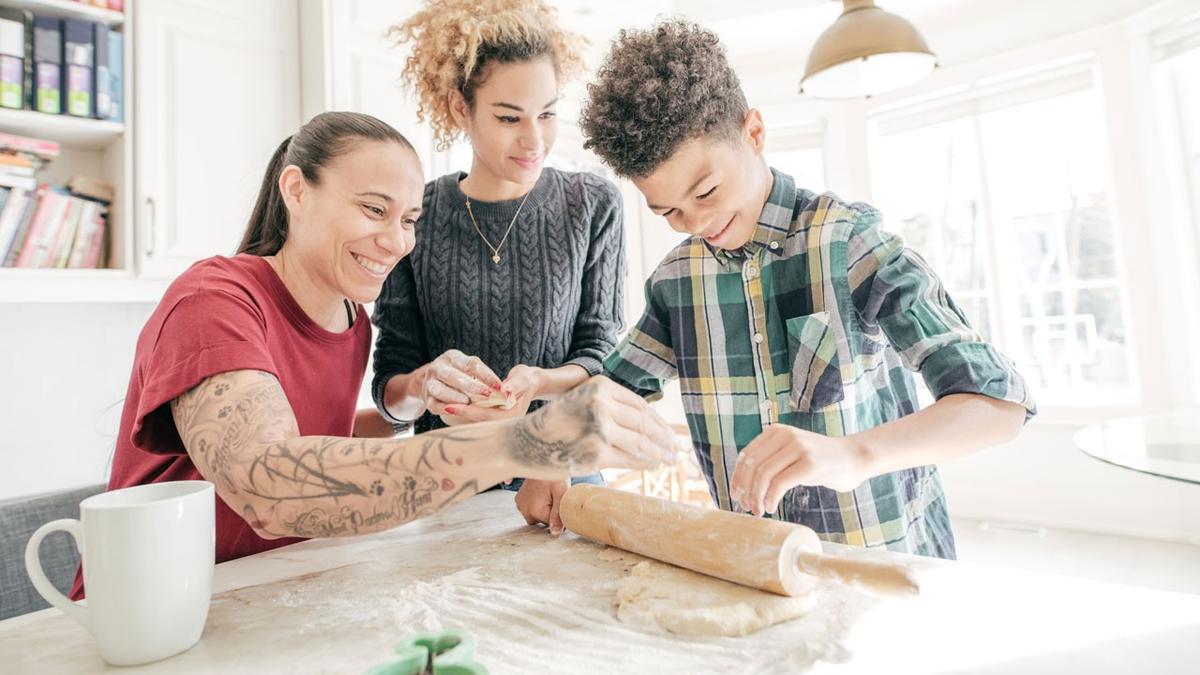Be Well and Prosper

Family wellbeing: keeping connected during and after lockdown
The lives and routines of families around the world have been turned upside down in the wake of the coronavirus pandemic. Faced with so much ongoing uncertainty, it is unsurprising that our emotional wellbeing may suffer under the stress and strain of the current crisis.
It’s okay to not feel okay
You may be struggling to balance all sorts of pressures and anxieties in these changing and challenging times. The impact of the pandemic continues to be felt in our personal lives, home lives, and communities, as well as globally. There will be many similarities, yet also differences, between what you and others are experiencing.
In these unprecedented times, it is important to remember that it is normal to feel stressed, exhausted, overwhelmed and continue to experience ups and downs. Doing the best you can with what you’ve got – whatever that may be – is good enough. Everyone will react to the ongoing situation differently, and whether you are thriving or just surviving, it is okay to feel the way you do, even if you don’t feel okay right now.
Looking after yourself will help you look after others
As a parent, it is important to look after your own emotional wellbeing, so you are better able to support your children. Think of your wellbeing like an oxygen mask; in the not-so-distant past when we were able to fly away on our holidays, the air stewards would tell us that in an emergency we must fit our own oxygen masks before assisting others. This is the same for our wellbeing – by looking after yourself you will then be better able to look after your children. Calmness can be contagious; if we feel calm our children will feel calmer too.
Try to find time for yourself – just taking 10 seconds to look at the clouds moving in the sky, taking some deep breaths while washing your hands, singing or humming your favourite song, or massaging in some scented hand cream can help lift your mood. Be kind to yourself – you are doing your best and deserve kindness as much as anyone else.
Acknowledge your emotions
The current climate continues to be stressful and uncertain, and both children and adults may feel overwhelmed by emotions, which will be expressed in how we behave. It is a common response to stress, whatever our age, to have disturbed sleep, need more reassurance and comfort than usual, and struggle to think straight or focus. We may be irritable, or feel numb and zoned out, struggling to find the energy to get through the day. Anything we can do to reduce our stress levels will help us cope and support our wellbeing.
An effective way of managing our emotions is by noticing what we feel, acknowledging it rather than ignoring it, and giving words to it. ‘Name it to tame it’ is a phrase coined by Dr Daniel J Siegel1, which explains how identifying our feelings can help us make sense of them and calm us down. By expressing your emotions in a simple way, you can support your own mental wellbeing and model to your children how to do the same for themselves in time, helping them to build emotional resilience.
Ways to support your family’s emotional wellbeing
Breathe – Taking time out for just 10 seconds can be enough to calm yourself down when you’re feeling overwhelmed. Placing one hand on your chest and the other on your belly can help you focus on your breath. Practicing deep breathing with your children can help teach them how to regulate and sooth themselves too – 5 finger breathing is an excellent resource to help with this.
Go with the flow – Be aware of feeling overwhelmed by social media and the news. Ask yourself whether they are helpful or whether they make you feel stressed – if the latter, give yourself permission not to look at them or limit your intake. Try to focus on what you and your family needs and spend your time doing what suits you best – aiming to be more flexible and less rigid.
Boost your oxytocin – We all need more of this ‘hug hormone’ at the moment – not only does it make us feel better, it also helps reduce our stress levels. Oxytocin is produced when we feel connected and safe with someone. The best way to increase levels of oxytocin is through positive physical touch. Hugging, dancing, or cuddling a pet can give us the oxytocin boost we need.
Laugh! – Laughter is another great way of boosting your natural feel-good chemicals and connecting with others. Try to incorporate laughter with (not at!) family members and friends and savour the moments of connection and joy together.
From: https://www.thriveapproach.com/keeping-connected-during-and-after-lockdown/
Aitken Wellbeing Committee

